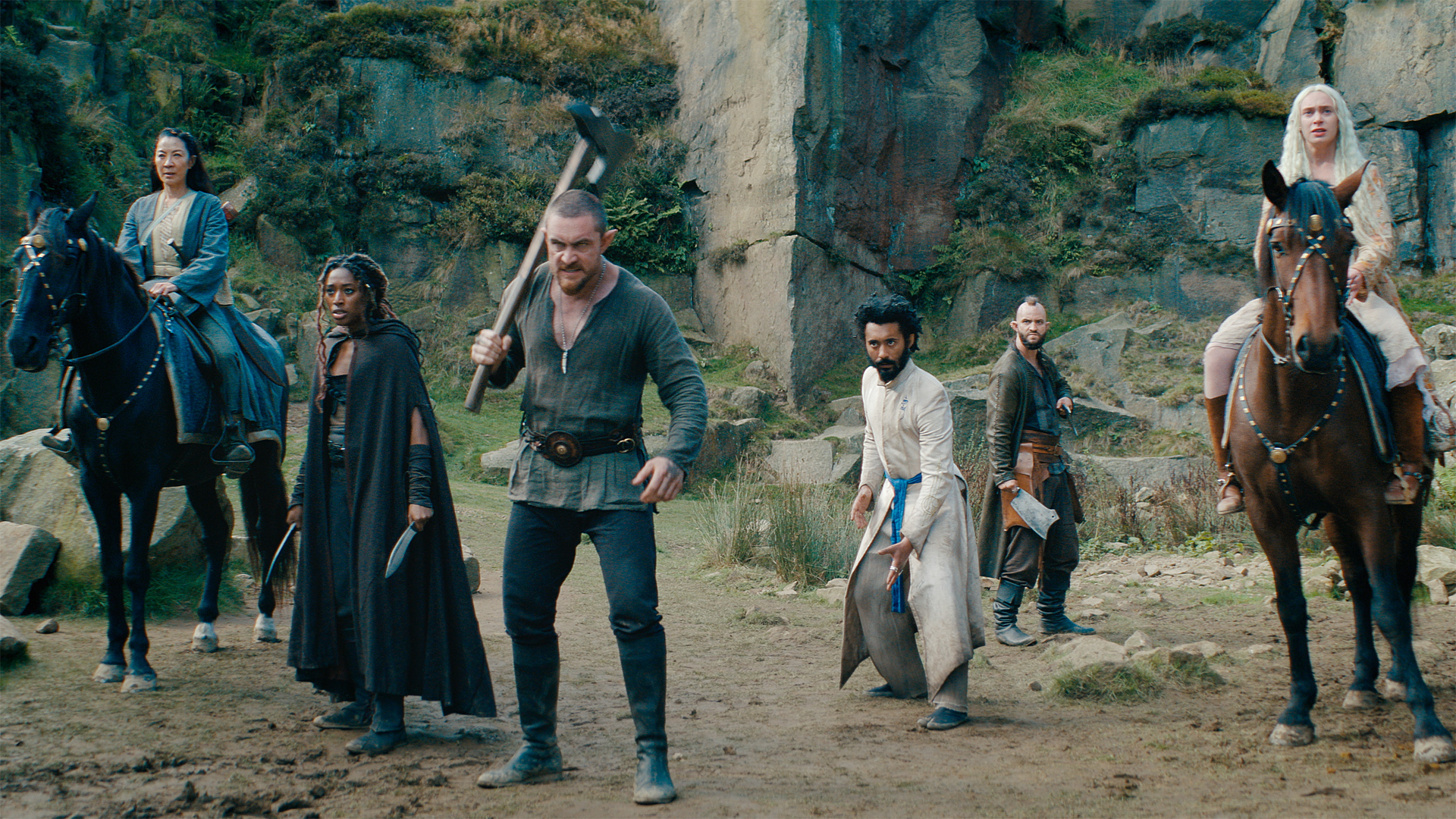
The Witcher: Blood Origin wants to reshape the hit fantasy franchise. Unlike its animated cousin Nightmare of the Wolf, the live-action show isn’t content with just telling another Geralt-less tale in Netflix’s Witcher-Verse. Instead, the forthcoming spin-off wants to completely rewrite The Witcher universe’s rulebook.
Taking on a challenge like this might be considered foolhardy, even at the best of times. However, Netflix’s live-action series has taken a verbal beating from The Witcher’s global fanbase recently. Fans were unhappy with deviations from Andrzej Sapkowski’s beloved book series in The Witcher season 2, which aired in December 2021. Meanwhile, the revelation that star Henry Cavill won’t return for The Witcher season 4 has led to calls for the show’s creative team to be sacked.
Such criticisms make telling Blood Origin’s tale – one that fans might equally deride – more difficult. There’s no source material or much goodwill to fall back on. So, where do you start with telling an original story that might actually satisfy fans?
"The hardest bit was it’s fresh," showrunner Declan de Barra tells TechRadar. "It’s an era that Andrzej hasn’t written about. Initially, you think ‘Great! I can write anything’ but then you realize ‘Oh, it’s much harder because I don’t have a crutch’. You can’t reference the books, but you have to set up what happens in them in a unique way that’s fresh for the audience."
Building an old world
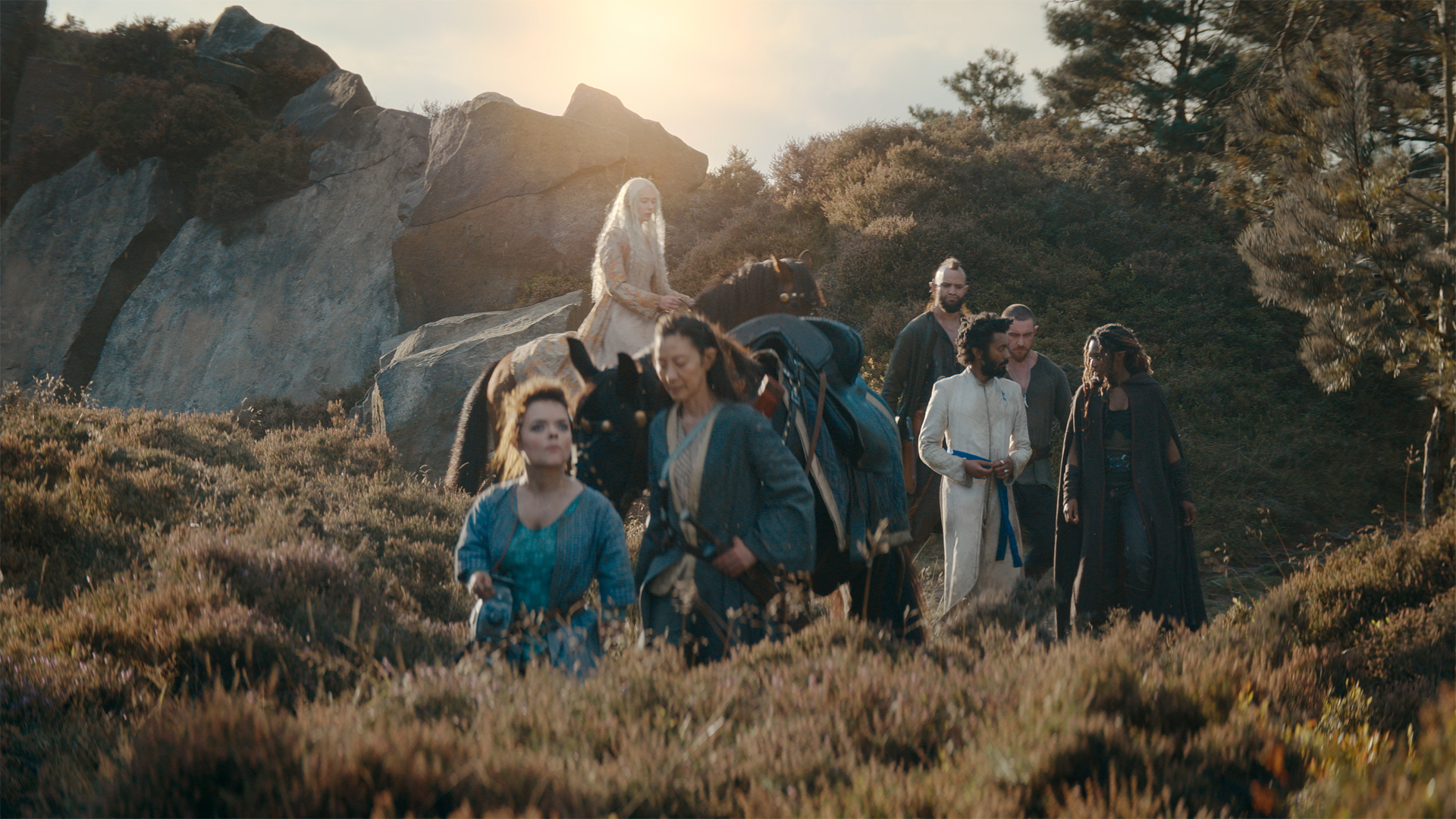
Set 1,200 years before Geralt’s adventures, Blood Origin tells the story of a seven-strong team of resistance fighters who take on the tyrannical elven kingdom of Xin’trea. That number includes fighter-turned-traveling musician Éile (Sophia Brown), hot-headed warrior Fjall (Laurence O’Fuarain), and spiritual swords expert Scian (Michelle Yeoh)
Together, the group plays a huge role in two of the universe’s biggest turning points. First, the creation of the proto-Witcher, the world’s first monster slayer. Second, inadvertently bringing about the Conjunction of the Spheres – a cataclysmic event that causes multiple worlds and races to collide, and bring chaos magic, monsters, and mankind to the Continent, i.e. The Witcher’s primary setting.
As de Barra notes, Sapkowski has never revealed how the Witchers were made. Additionally, the acclaimed author doesn’t explain why the Conjunction of the Spheres occurred, nor discuss the Golden Age of the elves and what caused its downfall.
Get daily insight, inspiration and deals in your inbox
Sign up for breaking news, reviews, opinion, top tech deals, and more.
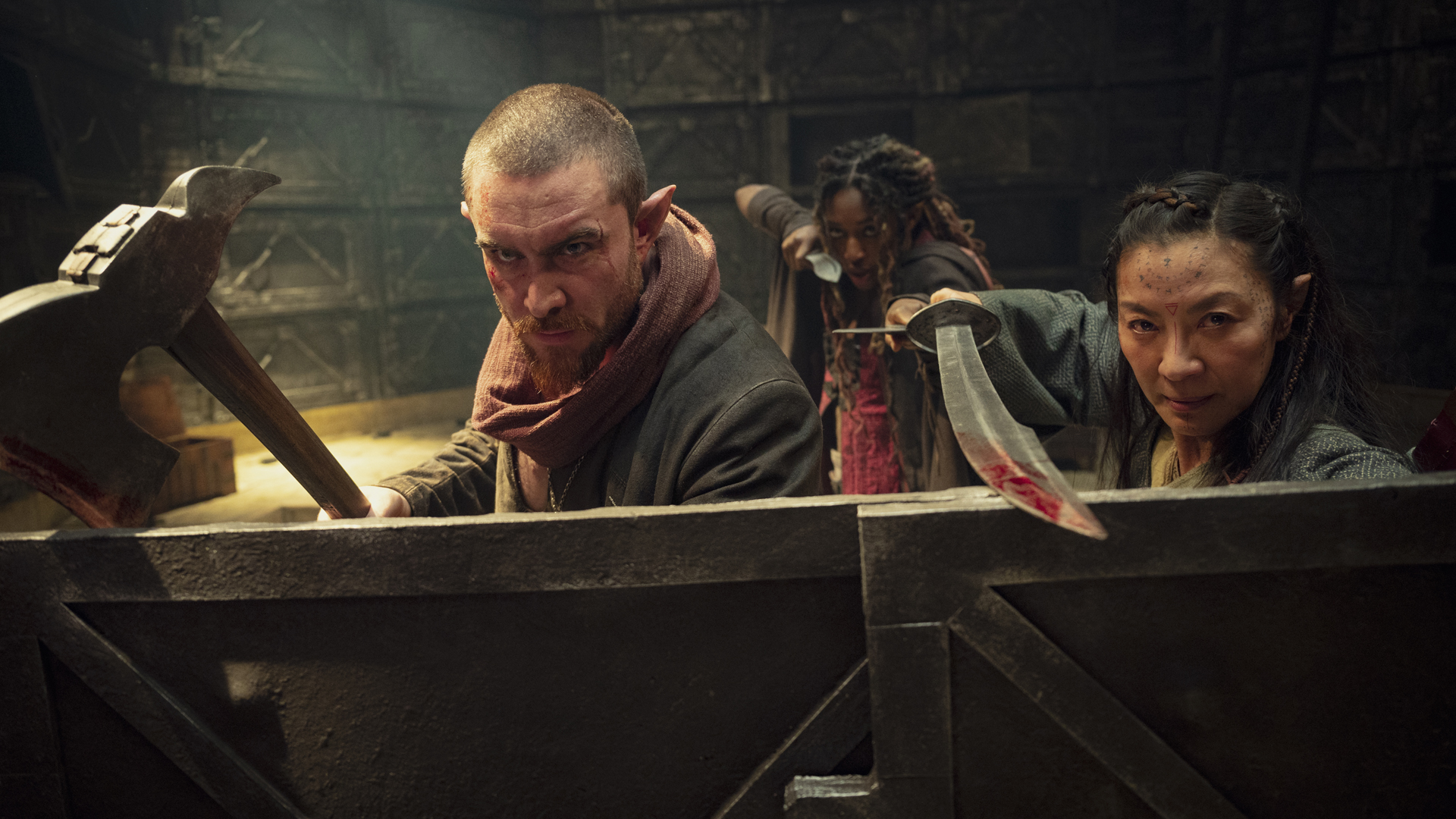
With little information on this era in Sapkowski’s texts, de Barra felt it was ripe for exploration. Equally, the opportunity to fill in major gaps in The Witcher’s history books was one de Barra – who wrote his Blood Origin pitch on a napkin in November 2019 – couldn’t pass up.
"When we meet the elves in The Witcher, they’ve been colonized," he explains. "They’ve lost their culture, songs, language – they can barely even reproduce. In our show, their empire is like Rome’s before the fall. In some ways, their civilization is more advanced than what we see in The Witcher, so how did they get from here to there? I wanted to flip that on its head and perceive the elves in a different light."
It’s a beautiful world to be a part of
Minnie Driver, Blood Origin actor
Blood Origin’s setting ties into how its creative team wants to invite new viewers into The Witcher universe. Building a new (or, rather, old) world in an as-yet-unseen time period acts as a gateway for franchise newcomers to immerse themselves in this fantastical world without feeling overwhelmed by what’s come before.
"One of the first things Declan and I talked about was ‘how do we ground this in The Witcher’s universe?'" Lauren Hissrich, Head of Netflix’s Witcher-Verse, says. "We want people to show up to Blood Origin with no concept of The Witcher, watch it, and enjoy it. I think Michelle Yeoh’s fans, for instance, might not be Witcher fans yet, but I think they’re going to show up and love it."
Casting an eclectic crew
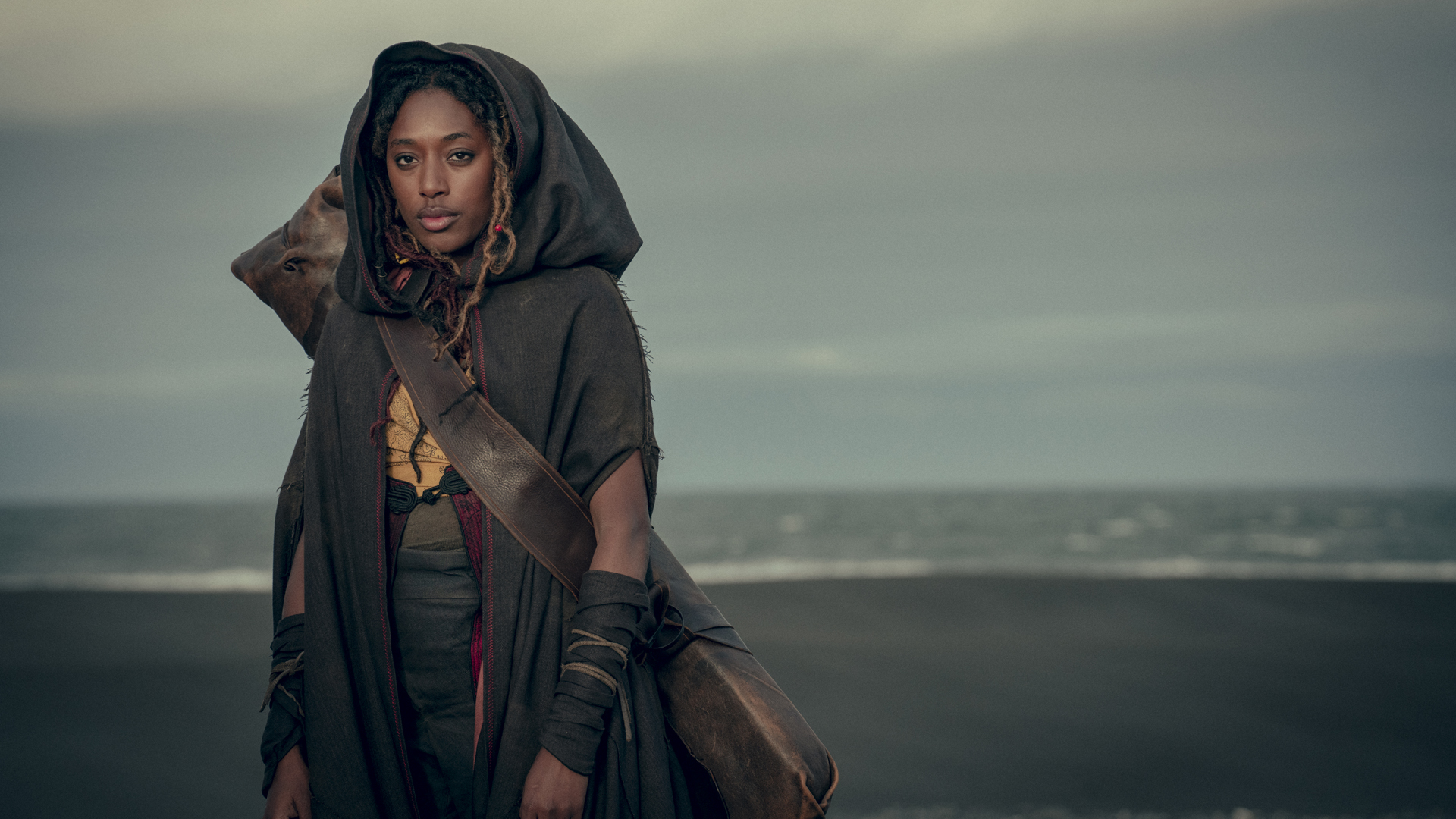
With Blood Origin taking place over a millennia before viewers (and readers) meet Geralt, audiences need a new batch of fun, albeit damaged, individuals to support.
Luckily, the miniseries has those in abundance, starting with Éile. When we meet the nomadic musician, she’s earned the nickname ‘The Lark’ for her joyous and occasionally haunting performances. However, when forces conspire against her early on in the show, Éile is pulled back into the warrior life she left behind, becoming the rebels’ de-facto leader in their fight against Xin’trea’s ambitious but oppressive regime.
For Brown, starring in a Witcher project provided the opportunity to utilize many of her real-world talents to bring Éile to life. Namely, her background in music and ballet, with the latter being particularly useful for the show’s pacy fight sequences.
"It helped massively," Brown recalls. "We had to learn to be warriors, so my dance history helped with the fight coordination and choreography. I also had to drop some of those teachings initially while I figured out who Éile was, including how she moved and sang. Once I worked that out and created her in my image, I had great foundations to build on and flesh her out."
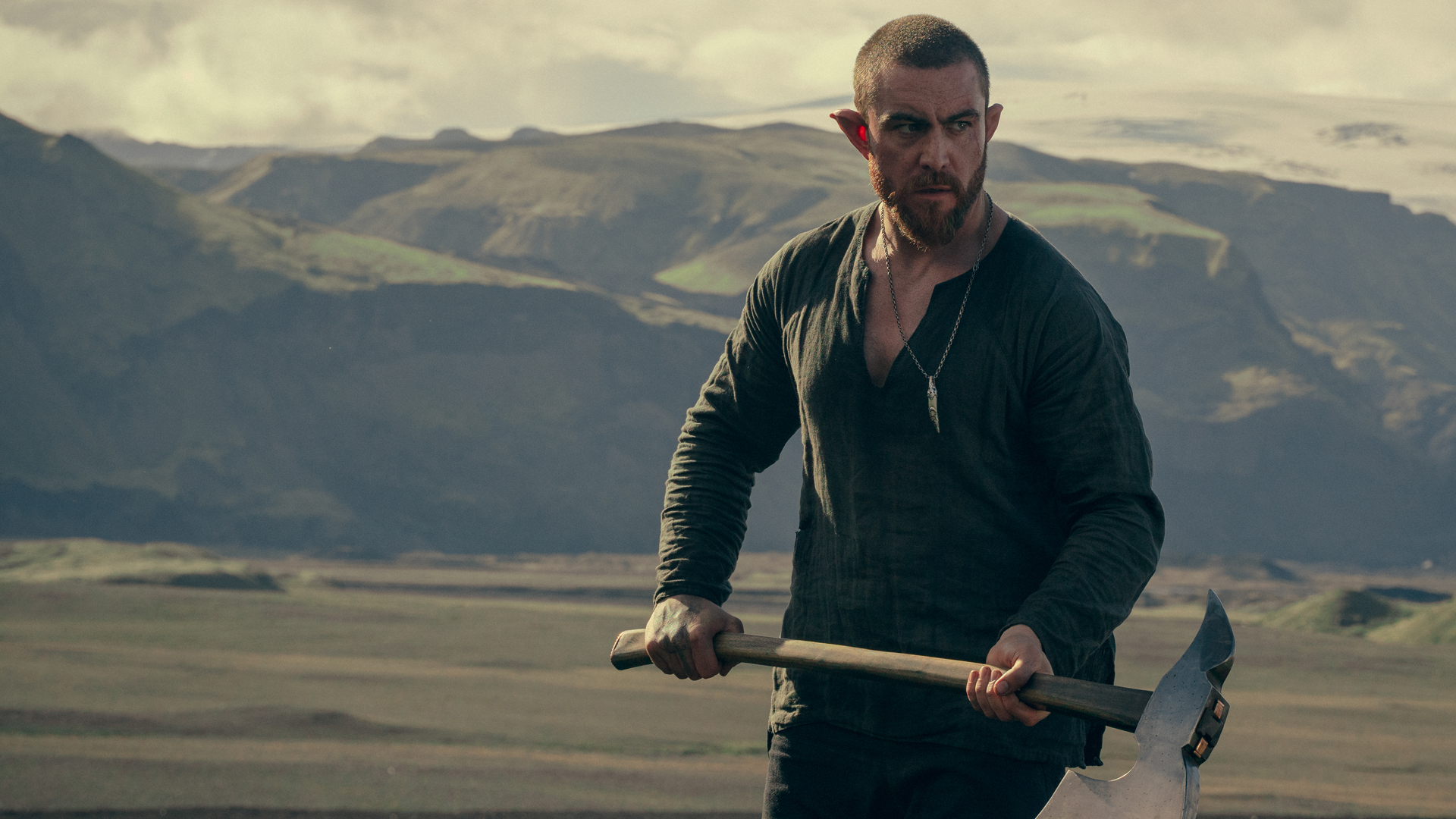
Joining Éile on her quest is O’Fuarain’s Fjall. As the group’s strongest warrior, O’Fuarain’s training differed from his co-stars, with the actor (in his first major role) packing on the muscle to realize Fjall’s physicality. However, as O’Fuarain was gearing up to begin his training regime, the pandemic hit, initially putting paid to those plans. Luckily, another major Witcher star was on hand to save the day.
"Henry [Cavill, who plays Geralt in The Witcher] has a private gym on set," O’Fuarain reveals. "So I was lucky enough to use it and be in there every single day to get to the size Netflix needed me to. Once we got to boot camp to learn the choreography from the stunt team, I found my character within that process. I also worked with an acting coach – Helena Walsh – to really dig into Fjall’s complexities and do him justice."
Blood Origin’s new cast of characters extends beyond Éile’s ragtag crew. New villains in the shape of Chief Druid Balor (Lenny Henry) and Xin’trean princess Merwyn (Mirren Mack) also play significant roles in transforming The Witcher’s universe.

Of the individuals introduced in the miniseries, though, Minnie Driver’s Seanchaí is the most mysterious. A time-traveling, shapeshifting storyteller, Seanchaí is responsible for leading viewers through Blood Origin’s story. However, apart from her magical abilities and penchant for recounting tales lost to the annals of time, we know little about Seanchaí’s persona and ambitions.
Like de Barra with Blood Origin’s narrative, then, Driver had a blank canvas to start with when building Seanchaí’s character. Even so, the Oscar-nominated actor was only too keen to take on such a task – especially if it meant being part of Netflix’s Witcher-Verse.
“It’s a beautiful world to be a part of,” Driver reveals. “You want to do great things as an actor, so it was a great way to dabble in this universe and be really useful in driving its story forward. It’s also an open-ended opportunity to come into The Witcher in a unique way and to be part of something bigger than myself.”
Bridging the fantasy gap
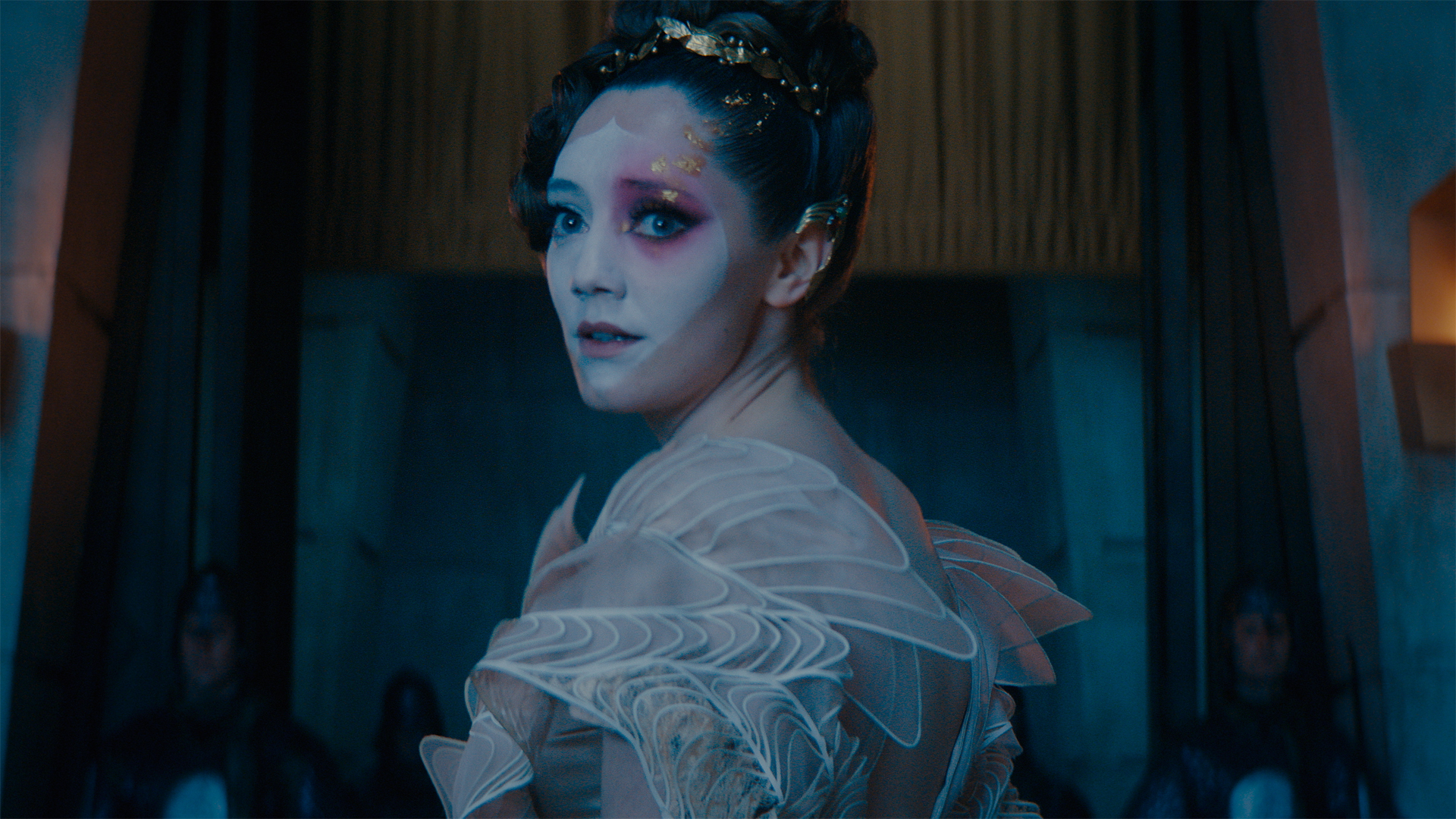
Blood Origin might set future Continent-based events in motion and expand the scope of Netflix’s Witcher-Verse. Despite revelations about the Witchers and the Conjunction of the Spheres, though, it needs physical ties to connect it back to the main show.
Step forward Jaskier (Joey Batey), the series’ fan-favorite bard, who was recently (and shockingly) revealed to be part of Blood Origin’s cast. Viewers have begun to speculate on what his appearance means for the spin-off and Jaskier himself. Is he a time traveler like Seanchaí? Or is he secretly immortal?
Revealing why Jaskier shows up now would spoil that surprise. However, Hissrich and Driver tease that Jaskier has a vital role to play in Blood Origin’s plot – and, subsequently, the potential narrative direction of The Witcher season 3.
"When Declan initially pitched the show, Jaskier wasn’t part of it," Hissrich reveals. "For fans tuning in from the main series, we thought ‘How do we make them feel like this is for them, too?’ With Jaskier, we’d done [the viral song] Toss a Coin to Your Witcher, which is all about changing the Continent’s view of Geralt. So we thought ‘What can we do here? How can we make this a story that Jaskier needs to tell again?’. It fit so beautifully into what was already sculpted. It obviously helps that Jaskier is a fan-favorite character, so we had to bring Joey in."
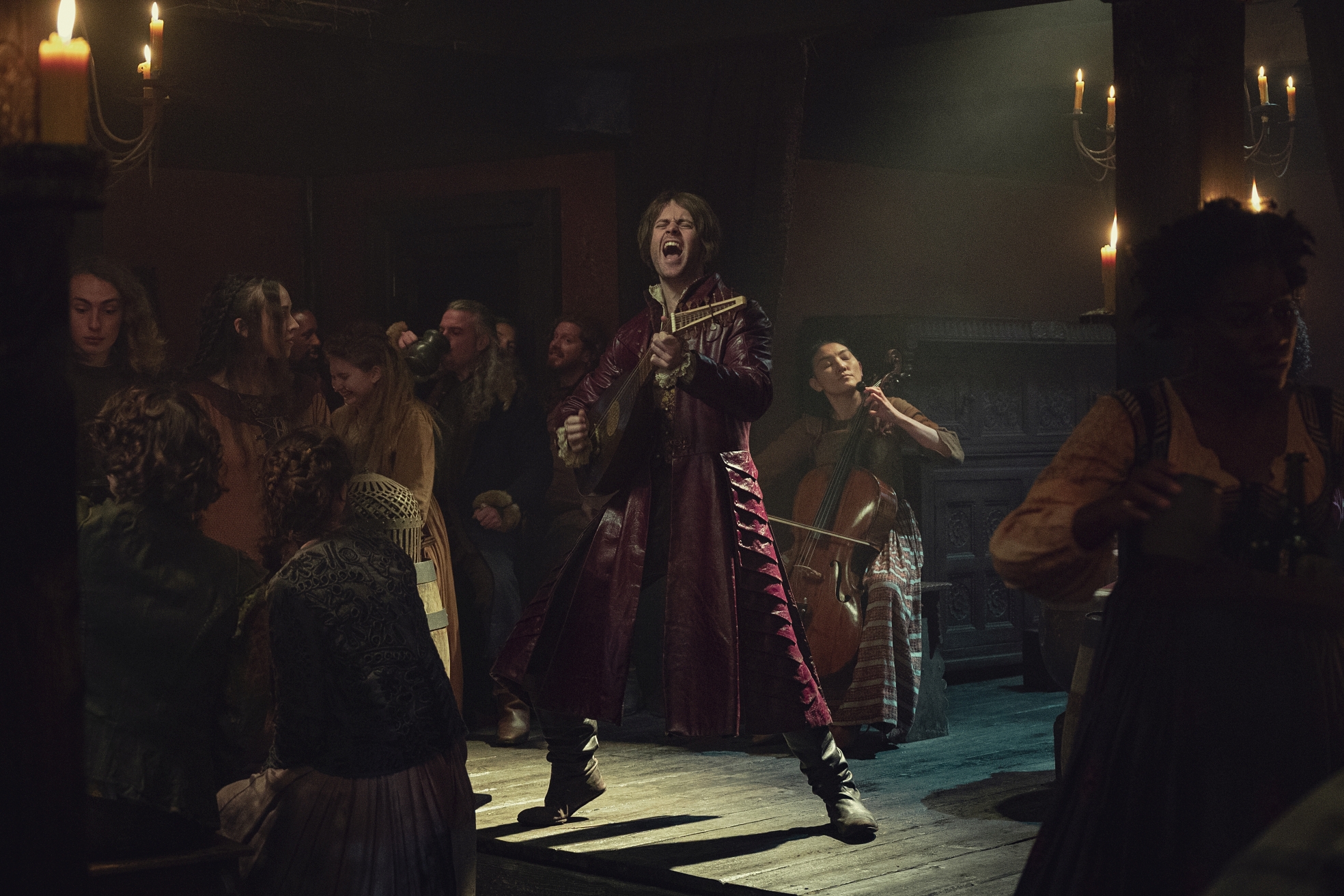
"Joey has this encyclopedic knowledge of the universe," Driver adds. "He’s a fantastic actor who brings so much to the scenes we share. Jaskier realizes that Seanchaí is going to help take you through this story, which she imparts to him and is full of meaning because she needs him to take it back to the Continent for reasons that’ll become clear."
What’s still unclear is how successful Blood Origin will be. Nightmare of the Wolf drew widespread acclaim upon release in August 2021 and Netflix will hope for a similar reaction to its latest Witcher spin-off. However, Nightmare of the Wolf’s launch came when The Witcher’s fanbase was fully supportive of Netflix’s Witcher-Verse.
In our show, the elves' empire is like Rome’s before the fall
Declan de Barra, Blood Origin showrunner
The animosity that’s grown since Nightmare of the Wolf’s arrival – Hissrich “fully understands” fans’ ire over Cavill’s impending departure – means Blood Origin is already on a hiding to nothing. Fail to storm up Netflix’s TV charts immediately after release, and Blood Origin could instigate the live-action series’ slow decline. That would be a pity for its cast and crew, with Driver expressing her desire to cross over into the main Witcher series.
Hissrich, though, remains confident that the spin-off will be successful, even if it doesn’t become one of the best Netflix shows of all time. Not only that, but she believes Blood Origin’s tale, and its impact on the wider Witcher universe, will guarantee casual and diehard fans tune in.
"Will this story be coming forward [in season 3]? Yes, absolutely," Hissrich teases. "We’ve talked about how Blood Origin changes our view of the elves in the main series. Now we’re going to introduce you to the Scoia’tael, so you’re suddenly going to see a race who were mostly victims start being part of the cycle of violence. What do they do? How do they shift the story? There are other characters like Avallac’h and Eredin, and other things Declan has introduced, which now I get to pick up on and take into season 3 and beyond. That’s wildly exciting."
The Witcher: Blood Origin releases exclusively on Netflix on Sunday, December 25.
As TechRadar's senior entertainment reporter, Tom covers all of the latest movies, TV shows, and streaming service news that you need to know about. You'll regularly find him writing about the Marvel Cinematic Universe, Star Wars, Netflix, Prime Video, Disney Plus, and many other topics of interest.
An NCTJ-accredited journalist, Tom also writes reviews, analytical articles, opinion pieces, and interview-led features on the biggest franchises, actors, directors and other industry leaders. You may see his quotes pop up in the odd official Marvel Studios video, too, such as this Moon Knight TV spot.
Away from work, Tom can be found checking out the latest video games, immersing himself in his favorite sporting pastime of football, reading the many unread books on his shelf, staying fit at the gym, and petting every dog he comes across. Got a scoop, interesting story, or an intriguing angle on the latest news in entertainment? Feel free to drop him a line.